Hi I’m Malcolm Turnbull, and I’m here to help … as the leader of the opposition
Malcolm Turnbull’s new campaign threatens the Coalition at the next election.
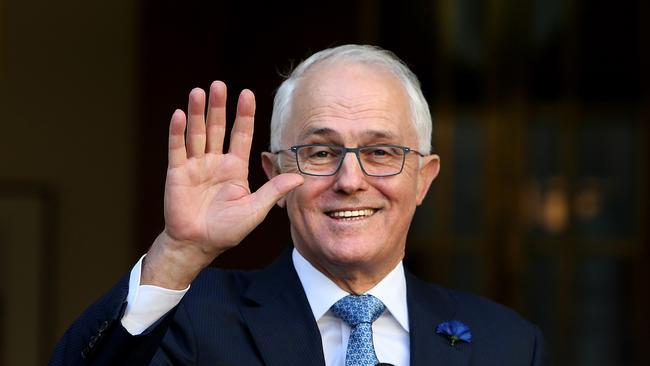
Malcolm Turnbull is becoming a new “Leader of the Opposition on Climate Change” with a campaign that threatens the Coalition at the next election and exploits the vacuum being left by Labor’s shifting position on coalmining.
Coalition ministers and MPs now regard the campaign of the former prime minister against the Coalition’s tenuous internal peace on climate change policy and commitments to net-zero carbon emissions by 2050 as an attempt to bring down the Morrison government at the election.
Apart from pursuing a different agenda to the Morrison government on doing away with coal and limiting gas, Mr Turnbull has also used media appearances — especially with the ABC and The Guardian — to undermine Christian Porter’s defence against historic rape allegations and support alleged rape victim Brittany Higgins as she criticised Mr Morrison.
He has also backed former Australia Post boss Christine Holgate, whose departure he blamed on misogyny.
In the past 10 days alone, Mr Turnbull has repeatedly criticised Coalition environmental policy and retweeted attacks on the Morrison government’s climate change credentials, including Scott Morrison’s appearance at the Biden climate change summit.
Mr Turnbull has also appeared on the ABC’s Q&A, where he clashed with Resources Minister Keith Pitt, and starred in a virtual forum for the left-leaning Australia Institute entitled “Coal, Climate Change and Conservatives’’.
Mr Turnbull told The Weekend Australian that Coalition MPs — including Nationals MPs, not just Liberals in “inner-city seats” — should be “fearful” because he believes his vision of independents campaigning on climate change is justified.
“I do think there is a real prospect of more Liberal and indeed National seats falling,” Mr Turnbull told The Weekend Australian on Friday.
“The Liberal moderates are far less influential than they were at least in the national parliament,” he said. “The Liberal Party appears to be less progressive on climate and more conservative on social issues. And this presents a real political vulnerability for a moderate Liberal incumbent.
“The failure to address the discrimination against, and disrespect of, women is another issue that will lead traditional Liberal voters to consider an alternative,” Mr Turnbull said.
“Increasingly, the federal Liberal Party room looks like one in which the much-reduced moderate liberal voices are held hostage by an increasingly right-wing majority. The broad church looks narrower all the time.”
Mr Pitt, a Queensland National who has presided over record resources exports during the coronavirus pandemic and who faced off against Mr Turnbull last week on the ABC’s Q&A program over climate change, sees his former leader’s push as a campaign against the federal Coalition.
“Malcolm Turnbull is actively campaigning against the government,” he told The Weekend Australian. “Malcolm is looking to re-establish the internal divisions and wars on climate change, and he’s been given more platforms than Abba to do it.”
Mr Turnbull’s public profile on climate change is helped by the Labor opposition’s reluctance to enter the debate, as it struggles with its own policy targets and a shift to renewed appeals to workers in regional and mining areas.
Because at least four senior Labor people refused to go on the Q&A panel, it was left to Mr Pitt to face Mr Turnbull and Greens senator Sarah Hanson-Young as the only politician arguing for the need to protect resources jobs as Australia reduces its greenhouse gas emissions.
Dave Sharma, the Liberal MP for Wentworth who, in 2019, won back Mr Turnbull’s old Sydney electorate from the independent Kerryn Phelps, told The Weekend Australian the voters of Wentworth believed tackling climate change was still a high priority, and some of them wanted the government to do more.
But he also said there was a recognition that there was a transition under way and that the nation needed to be “on the journey together”.
“Tackling climate change remains a high priority for Wentworth voters. While some would like us to be moving faster, there is acknowledgment that the necessary transition is under way, and an appreciation that the whole nation needs to be on this journey together,” Mr Sharma said.
The politics of coalmining, gas-fired power generation, renewables and jobs is particularly difficult for the major parties before the NSW state by-election in the seat of Upper Hunter, where the Labor candidate is a “proud coalminer” and federal Energy Minister Angus Taylor is looking at a gas-fired power station for the Hunter.
Last week, Mr Turnbull derided Mr Pitt publicly for defending Mr Morrison’s declaration that Australia’s climate change policy would not be decided by “inner-city elites”, and that there would be technological solutions to cutting emissions and for defending coal exports.
“Seriously, Keith, what are you doing?” Mr Turnbull asked his former minister, who quit the ministry in 2018 over Mr Turnbull’s climate change policy.
“Is this a kind of coal-hugging bubble? It is literally nuts,” he said.
Mr Turnbull said on Friday that “Scott’s swipe at inner-city dinner parties” only underlined the perception that “many traditional Liberal and National voters feel they are being taken for granted”.
Mr Turnbull’s public campaign of criticism of the Coalition is seen as a double threat to the Prime Minister’s re-election prospects at the next poll, which must be called within 12 months, with climate change and treatment of women in his sights.
The first climate change threat is that Mr Turnbull will lift the scab of the barely concealed wounds within the Coalition between those backing regional jobs in the coal and mineral-rich states of NSW, Queensland and Western Australia and those wanting Australia to match international commitments to radically reduce greenhouse gas emissions.
So far, Mr Morrison is managing an uneasy truce on climate change within the Coalition as he promotes the role of gas as a transitional tool, “technology over taxes”, and edges towards Australia having net-zero greenhouse gas emissions by 2050.
It’s a position that Mr Turnbull rejects. He demands far more.
“Right now, internationally, we are out of step with our closest friends and allies on climate. The White House is obviously very disappointed with Australia’s failure to increase its 2030 emissions reduction target,” he said.
But the result is far more than Mr Turnbull was able to achieve as either opposition leader, when Kevin Rudd sought to introduce an emissions-trading scheme, or as prime minister, when he couldn’t unite the Coalition over the National Energy Guarantee emissions and energy policy.
Mr Turnbull said: “The fetishisation, or politicisation, of energy policy has meant that the political debate has become untethered from the facts”.
He blames News Corp, publisher of The Weekend Australian, for the “crazy politics” of climate change
On Friday, Mr Turnbull said he could cut “Scott some slack” over the “crazy” right-wing politics but said Mr Morrison should have reintroduced the NEG, which never went to parliament, after he was elected.
Mr Morrison was widely judged to have handled US President Joe Biden’s climate change summit well this week. He kept a steady course, refusing to be bullied by either China or the US-led core of developed nations that have promised to achieve more than Australia but have failed to do so.
The decision three weeks ago by the NSW Liberal government to appoint Mr Turnbull as the chair of the NSW Net Zero Emissions and Clean Economy Board and then dump him days later after an internal backlash from Coalition MPs demonstrates that he is still seen as a divisive figure.
Liberal MPs also believe that the vehemence and frequency of Mr Turnbull’s criticism of the Morrison government and his former colleagues is diminishing his political impact and discounting his currency as a former PM.
The second climate change threat is Mr Turnbull’s publicly stated vision of a swarm of climate change activists appearing as independents in what he sees as vulnerable Liberal inner-city electorates winning enough seats in a tight election to hold the balance of power and have the whip hand on who forms government and climate change policy.
Last year, Mr Turnbull set out a scenario for “progressive independents”, using the example of “small l” liberal women who campaigned for stronger climate change action in the once rock-solid Liberal seats of Mayo, Indi and Warringah, as well as his own former seat of Wentworth, to beat Liberal MPs.
“Without a plan for a post-coal Australia, the Coalition may find its majority lost, not to Labor, but to progressive independents in what used to be Liberal heartland,” Mr Turnbull declared.
“Climate-conscious independents are targeting more Coalition seats, with community groups forming well in advance of a coming election. Indi and Warringah are not “special cases” but templates for change if the Coalition cannot deliver on climate.”
Mr Turnbull has identified a path to defeat Liberal MPs and bring down the Morrison government without advocating a Labor vote and which trades on residual Liberal anger about his removal as prime minister in 2018.
This is a political vision of a third force of voters in Liberal seats who now vote Liberal or Labor, don’t vote Green and may be disillusioned with the recalibration of the main parties’ climate change policies. At the last election, there was such a constituency and it shifted to independents in at least two seats.
Liberal strategists and some MPs in those “elite inner-city electorates” can see the general danger from Mr Turnbull’s campaign and the even greater peril of the climate change agenda if there is another searing summer and more bushfires.
In 2020, Mr Turnbull attacked Mr Morrison’s handling of the Black Summer bushfires, accusing him of “downplaying the threat” and then “going on holiday”. He accused his successor of a lack of leadership and not behaving as a prime minister should.
That was Mr Morrison’s worst period as Liberal leader, the lowest point of his public support and a magnification of the Coalition’s divisions over climate change.
Since then, through his management of the pandemic, Mr Morrison’s personal standing has jumped to record highs.
Peter Dutton, who brought an end to Mr Turnbull’s leadership and has put more conservative steel into the Coalition since becoming Defence Minister, points to new priorities in the public mind since the pandemic that have softened the edge of Mr Turnbull’s climate campaign.
“As we move around the country, it is clear that families are concerned about the impact of COVID-19 on their health and the economy. People are concerned about keeping their jobs and seeing jobs for their children and grandchildren,” he said.
“These are the things that are most important to people.”
Likewise, former Turnbull minister Concetta Fierravanti-Wells, who campaigns in western Sydney, said the COVID-19 crisis had made people aware of the need for domestic industry.
“The elimination of coal-fired baseload power in favour of windmills and solar panels (both made in China) is not only economic risk-taking, but also jeopardises our national security during uncertain times when, more than ever, we need competitive domestic industries,” she said. “To do otherwise is a march of folly.”
While Mr Morrison and other senior Liberals accept the reality that Mr Turnbull’s criticisms will be an election factor, they are reluctant to lift his profile by responding to his attacks beyond the set-piece media appearances.
There is also a view that Mr Turnbull’s long-term criticism of Mr Morrison’s behaviour and Coalition policy — especially on climate change — will inure Liberal voters against his arguments.


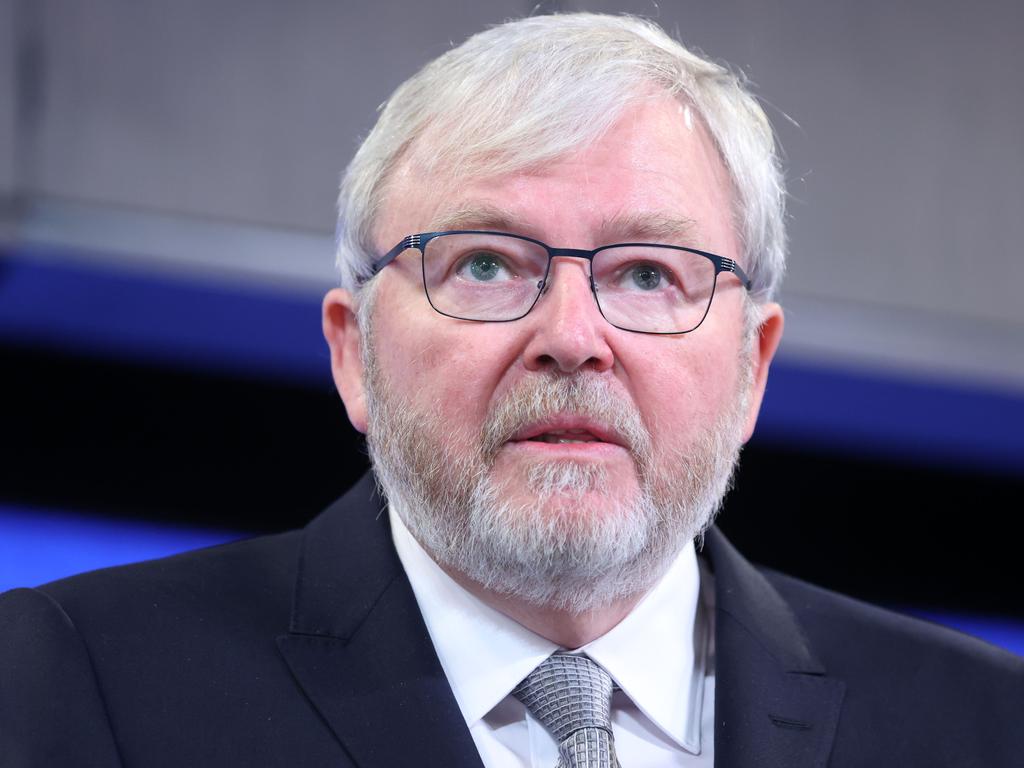
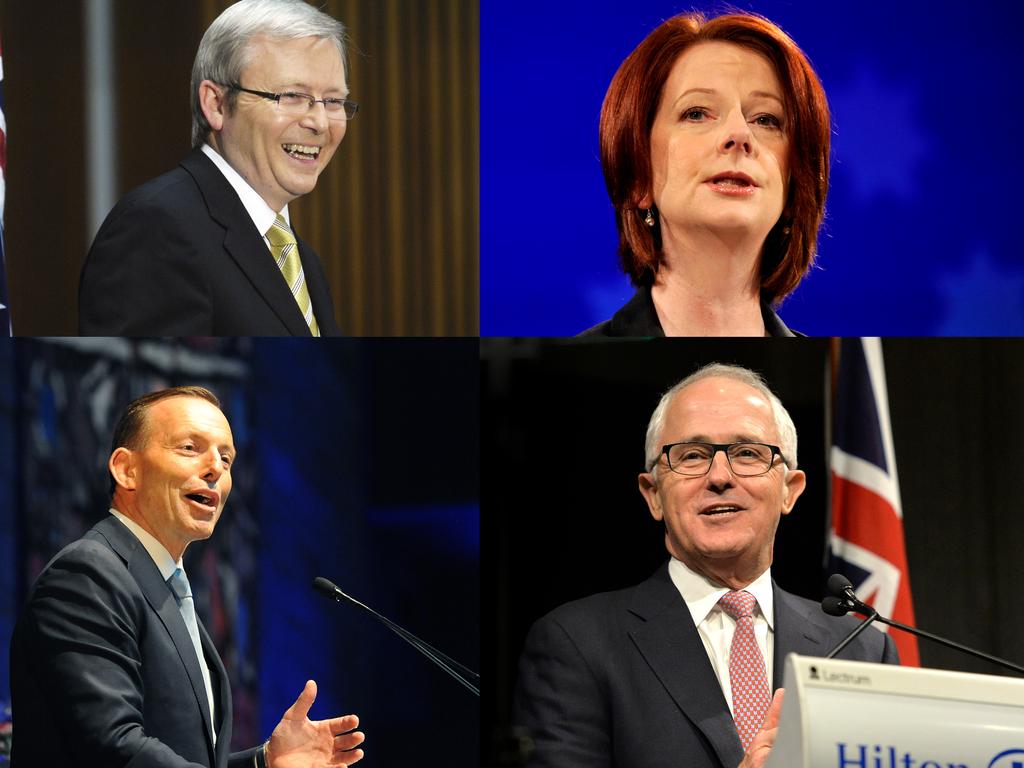
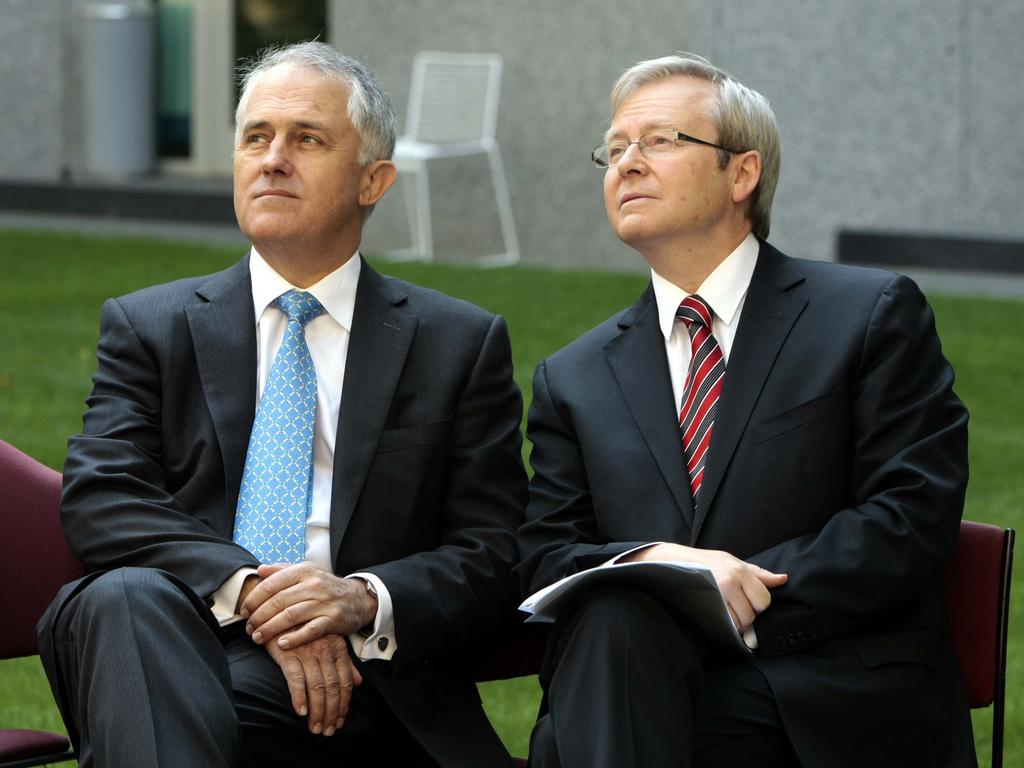
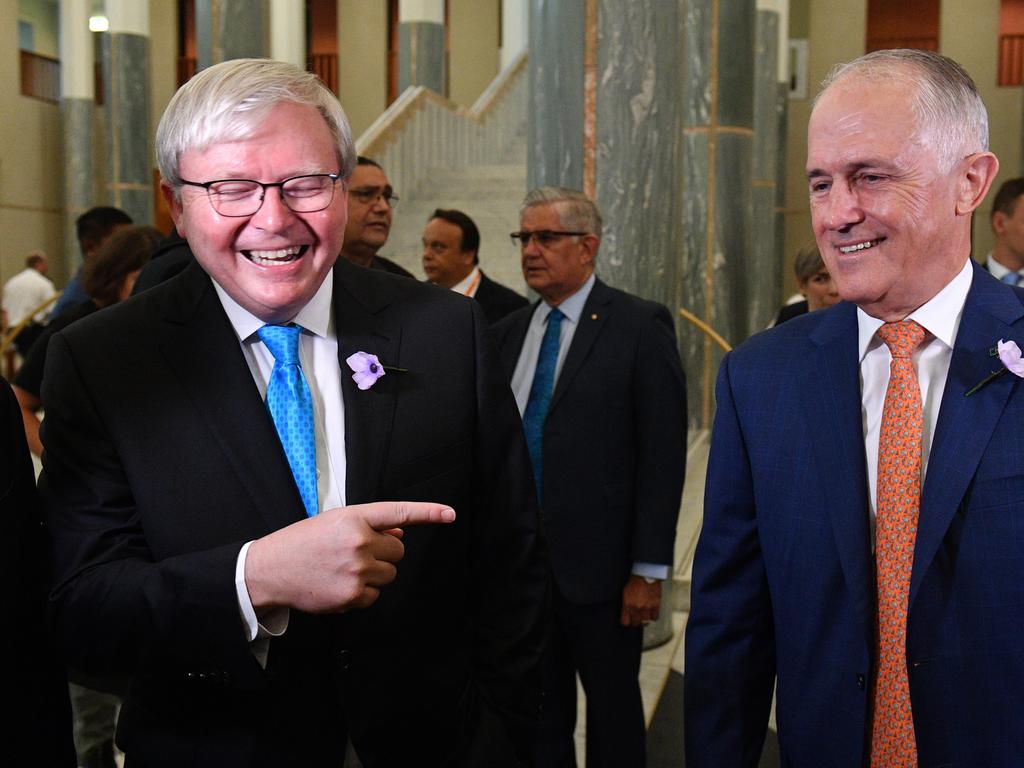

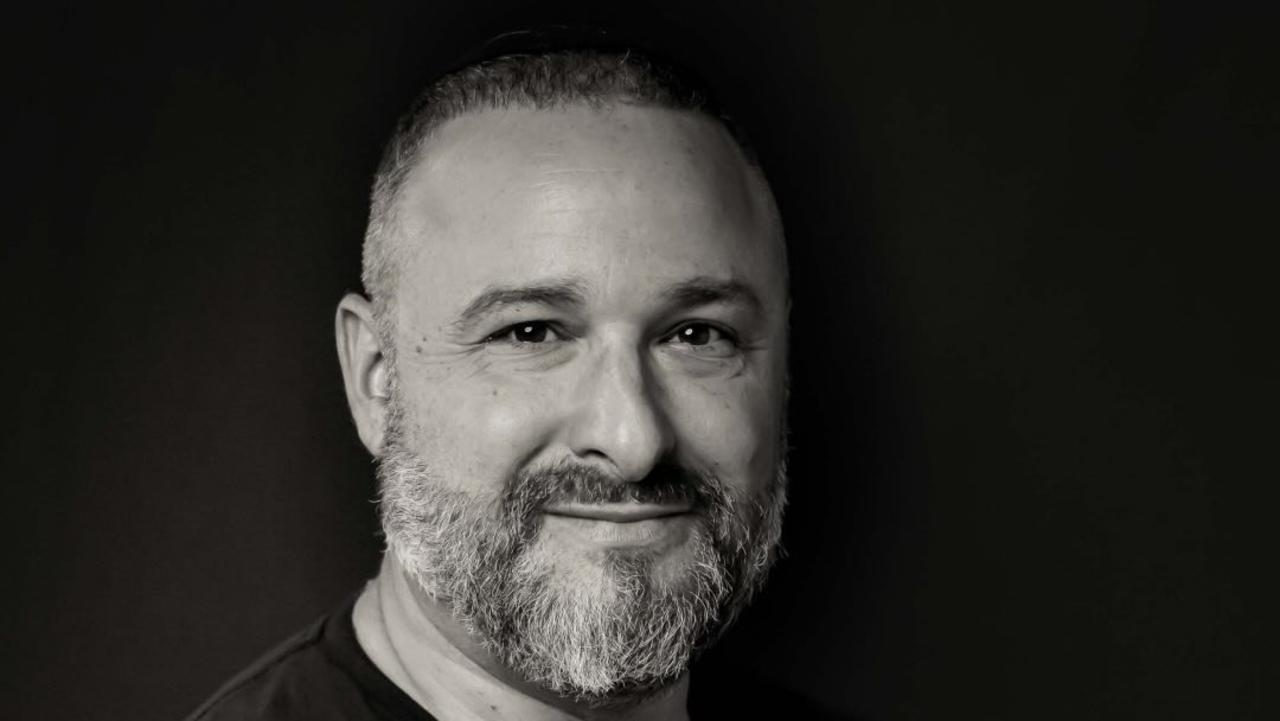
To join the conversation, please log in. Don't have an account? Register
Join the conversation, you are commenting as Logout